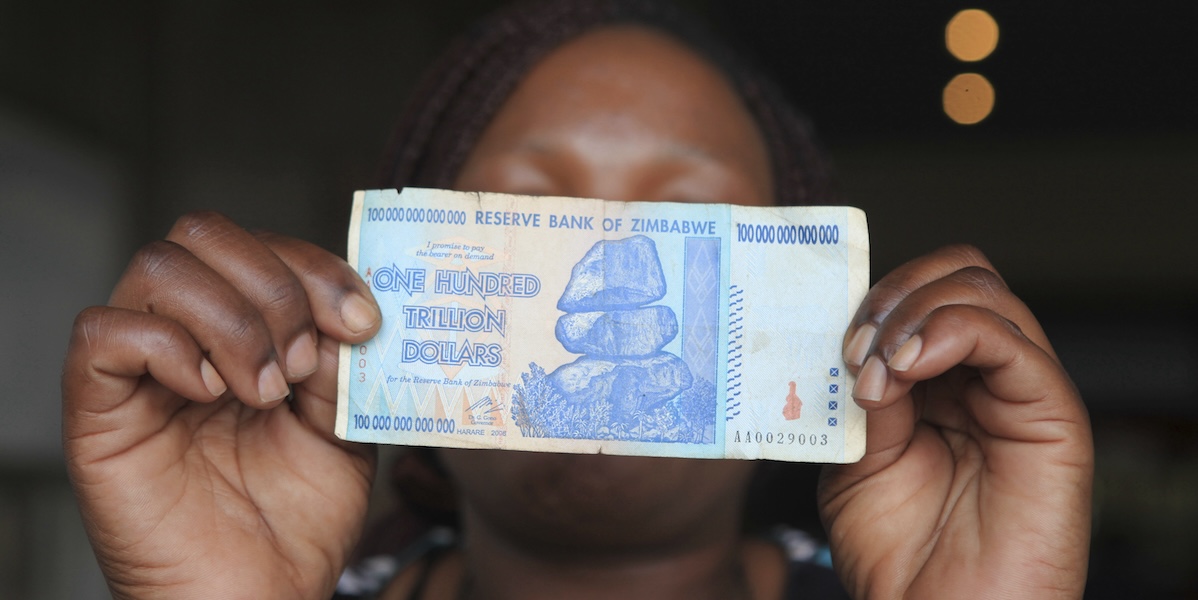Zimbabwe will present on Friday a new currency, the sixth since 2008: all the previous ones rapidly lost value due to hyperinflation. President Emmerson Mnangagwa’s government has said the value of the new currency will be tied to, and therefore backed by, the country’s gold reserves. However, there are major doubts as to whether Zimbabwe has enough gold to support a new currency, while the population has become accustomed over the years not to rely on the local currency, keeping their few savings in US dollars at home.
The Republic of Zimbabwe is a southern African country with around 16 million inhabitants, which has been struggling for decades with economic problems linked to heavy foreign debt and is currently affected by a crisis in the production of agricultural goods due to a severe drought . The current currency, the Zimbabwe dollar, was put into circulation five years ago, but only lost more than three-quarters of its value against the US dollar in 2024. For some months now, the country’s central bank has stopped taking measures to try to defend its value: it currently takes 36,000 Zimbabwe dollars to have one US dollar in unofficial exchange rates, compared to the official price of 26,000.
The Zimbabwe dollar, i.e. the currency that is about to be removed from circulation, was launched after a period of great confusion, in which the previous currency had changed denominations three times (changing its price against the dollar each time), and was then abandoned in 2009 because it was worthless, replaced for a few years by a multi-currency systemin which US dollars, South African rands, Botswana pula, British pounds, Australian dollars, Chinese yuan, Indian rupees and Japanese yen were legal tender in the country.
Un cambiavalute al mercato nero in Harare (AP Photo/Tsvangirayi Mukwazhi)
The launch of the new currency, according to the president’s intentions, should overcome the problems of devaluation thanks to its convertibility into gold. Tying the value of a currency to gold reserves means printing money in a fixed quantity, equal to the value of the gold reserves that the country holds: on the one hand this should guarantee the stability of the currency, on the other it greatly limits the possibilities of intervention on the economy and spending capabilities. In recent years the Zimbabwean government had repeatedly printed money to respond to public liquidity crises, contributing to the large growth in inflation, which is currently around 47 percent on an annual basis.
It doesn’t exist at the moment any country in the world that follows the rule of the so-called gold standard, quite common until the First World War: then central banks always had to ensure the convertibility of banknotes and coins into real gold, which had to be held as a reserve in proportion to the quantity of banknotes and coins in circulation. In practical terms you could go to a bank and ask to exchange your notes for gold and this guaranteed a certain level of value to the notes and coins.
One of the central problems highlighted by economists is that Zimbabwe does not possess particular gold reserves, even lower than those of other African countries. It is estimated that the reserves are equivalent to around 3 tonnes, partly stored in local banks, partly abroad. The value of gold moves around 70 thousand euros per kilo, the current reserves would allow currency to be printed only to cover one month of the country’s usual import expenses. South Africa, for comparison, has 125 tonnes of gold reserves.
(AP Photo/Tsvangirayi Mukwazhi)
Zimbabwe has been economically isolated for several decades, due to the accumulated delays in repaying foreign debts: upon coming to power, President Mnangagwa announced that he wanted to work to overcome this situation, but international collaboration soon stopped for the repressive and anti-democratic methods with which he governs the country.
Mnangagwa has been in power since 2017, when he staged a military-backed, nonviolent coup against the previous authoritarian president Robert Mugabe (Mnangagwa was then vice president and head of the security services). He is part of the Zimbabwe African National Union – Patriotic Front (ZANU-PF), the party that has governed Zimbabwe continuously since 1980, the year the country gained independence from the United Kingdom. In 2023 he won unfree elections, thus starting a second term.
– Read also: Because the whole economy revolves around the dollar
